By Jeff Smith, on Wed Jun 20, 2012 at 8:30 AM ET 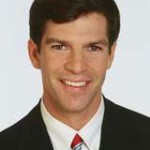 Sure, she has a chance. Sure, she has a chance.
Anytime you’ve got an R after your name, and you’re running in the most Republican state in the country with the best political name in the nation (from a Utahn perspective) topping your ticket, you have a chance.
But it’s just wishful thinking to say that she’ll garner more black GOP support. Allen West and Tim Scott haven’t done so; Michael Steele didn’t do so last cycle.
 Mia Love Data suggests that someone a lot higher profile (Rubio) has been unable to do so for Latinos.
Although, I’m sure the Republicans will have her onstage 12 hours a day in Tampa. Of course, that will be targeted at suburban white women more than at blacks; they’re smart enough to realize that Obama is going to get 90 percent of the black vote regardless.
And as long as there are state Republican parties hosting conventions where bullet-riddled outhouses decorated as Obama presidential libraries are seen as funny jokes, that will never change.
(Cross-posted, with permission of the author, from Politico’s Arena)
By Artur Davis, on Tue Jun 19, 2012 at 8:30 AM ET  For the same reasons that I didn’t apply the gaffe label to Barack Obama’s sanguine musings about the economy, or Bill Clinton’s rebelliousness on Democratic tax policy, I wouldn’t apply it to Jeb Bush’s recent pronouncements on the Republican Party. The former Florida governor, and the man who would have been elected president in 2000 if he had turned a couple of percentage points in his first Governor’s race, meant to put the force of his substantial appeal behind a warning about the erosion of a certain generational brand in the GOP. If not exactly a lament for Rockefeller type moderates, it was certainly a wishfulness for a strategic and political approach that coopted Democrats on themes like education and healthcare, and that sought active ownership of issues like immigration reform: in other words, the template that got two other members of the family elected president. For the same reasons that I didn’t apply the gaffe label to Barack Obama’s sanguine musings about the economy, or Bill Clinton’s rebelliousness on Democratic tax policy, I wouldn’t apply it to Jeb Bush’s recent pronouncements on the Republican Party. The former Florida governor, and the man who would have been elected president in 2000 if he had turned a couple of percentage points in his first Governor’s race, meant to put the force of his substantial appeal behind a warning about the erosion of a certain generational brand in the GOP. If not exactly a lament for Rockefeller type moderates, it was certainly a wishfulness for a strategic and political approach that coopted Democrats on themes like education and healthcare, and that sought active ownership of issues like immigration reform: in other words, the template that got two other members of the family elected president.
Conservative cynics will note that said template did not prevent one Bush from losing reelection, and another from a disastrous second term, and that the failings of both yielded the two most successful Democratic candidacies in the last three decades. But Bush is certainly right about the long view: a Romney presidency that wanted to make headway on entitlements, that wanted to make the authentically bold education reforms Romney is proposing a reality, and that wanted to end Obamacare without triggering a politically dangerous surge in the ranks of the uninsured, would need room to maneuver and navigate through implacable Democratic opposition. It is not heresy to envision a Romney term that breaks gridlock instead of perpetuating it.
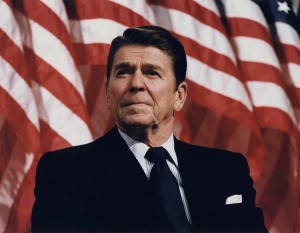 As to the part of the Bush address that made headlines, the “Reagan couldn’t survive in today’s Republican Party”, there is a value in a history lesson, and no one has told it better than Craig Shirley’s two year old book on the 1980 campaign, “Rendezvous With Destiny“. Shirley reconstructs the late seventies as anything but a monolithically conservative climate and the Republican Party as a fractious group that was hardly reconciled to Reagan’s candidacy. Edward Kennedy was the country’s most charismatic political star and promised unabashedly to revive an assertive liberalism that did not intend to be constrained by the era’s inflationary threat. Reagan’s opposition was credible and experienced and moderate alternatives like George HW Bush and Howard Baker commanded the loyalties of a significant element of the Republican funding base. Gerald Ford sat on the sidelines, but ran close with Reagan in Republican preference polls as late as the winter of 1980. As to the part of the Bush address that made headlines, the “Reagan couldn’t survive in today’s Republican Party”, there is a value in a history lesson, and no one has told it better than Craig Shirley’s two year old book on the 1980 campaign, “Rendezvous With Destiny“. Shirley reconstructs the late seventies as anything but a monolithically conservative climate and the Republican Party as a fractious group that was hardly reconciled to Reagan’s candidacy. Edward Kennedy was the country’s most charismatic political star and promised unabashedly to revive an assertive liberalism that did not intend to be constrained by the era’s inflationary threat. Reagan’s opposition was credible and experienced and moderate alternatives like George HW Bush and Howard Baker commanded the loyalties of a significant element of the Republican funding base. Gerald Ford sat on the sidelines, but ran close with Reagan in Republican preference polls as late as the winter of 1980.
That Reagan won so comfortably seems like historical inevitability now, the natural progression of a country shedding itself of sixties style excess. Shirley’s masterful re-telling of that cycle describes something infinitely more inspiring and complex: a brilliantly tenacious politician who survived through the force of his own personality and who re-imagined conservatism as freedom rather than austerity, as a source of confidence rather than reproach. It does Reagan little justice to shrink him to artificial proportions by suggesting that he was only the sum of the elements of his platform; it shortchanges the ideological instability of the times to interpret Reagan’s victory as a simple instance of a candidate meeting his party’s and a majority of the country’s moods. More than any American figure since JFK, Reagan prospered by shaping that mood himself.
And the notion that Reagan’s governing style was the hallmark of an ambidextrous Great Compromiser who couldn’t thrive in today’s hyper-partisan atmosphere? It would amuse the air traffic controllers union he rolled over, and the congressional Democrats he bludgeoned in his first budget fights, and the communists he confronted in Europe and Central America. The deals Reagan did cut, over Social Security financing, for example, were imperfect then and now, but they didn’t define Reagan or diminish him with movement conservative because the times he was unmovable were actually the moments that built the public’s confidence. And the rebuilding of that confidence in the aftermath of the disastrous seventies is what installed him as a bipartisan presidential icon, much more than the specifics of a legislative track record.
Read the rest of…
Artur Davis: Reagan Would Still Win
By Jason Grill, on Mon Jun 18, 2012 at 10:00 AM ET 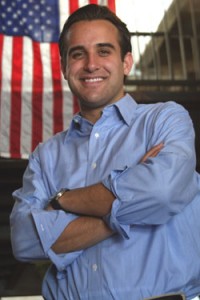 President Clinton and his New Democrat “DLC” policies of the 1990s are what President Obama’s team need to be embracing, not running from. President Clinton and his New Democrat “DLC” policies of the 1990s are what President Obama’s team need to be embracing, not running from.
President Clinton is one of the most effective allies for President Obama and he should brush off the recent remarks.
Clinton is a huge net positive for Obama on anything economic or job creation related. President Obama should not make the same mistake Al Gore made in 2000.
The more Obama is seen with Clinton the better he will do in key swing states and overall in the 2012 election.
(Cross-posted, with permission of the author, from Politico’s Arena)
By Michael Steele, on Fri Jun 15, 2012 at 10:00 AM ET Courtesy of Politico:
 Spotted: Comedian Pauly Shore and former RNC chairman Michael Steele grabbing lunch at Ben’s Chili Bowl in Washington on Wednesday. Shore is in D.C. to film “Paulytics: Pauly Shore Goes to Washington,” a Showtime special airing in November. Spotted: Comedian Pauly Shore and former RNC chairman Michael Steele grabbing lunch at Ben’s Chili Bowl in Washington on Wednesday. Shore is in D.C. to film “Paulytics: Pauly Shore Goes to Washington,” a Showtime special airing in November.
They ordered a cheeseburger, a beef dog, chili cheese fries and regular fries along with a Sprite and bottled water, according to a spokeswoman for Ben’s, who said they stayed for about an hour and a half. The pair also went shopping together according to Twitter reports.
For any Shore fans out there, he’ll be back in town on June 30, taping more footage for his show at the 9:30 Club.
By Jonathan Miller, on Mon Jun 11, 2012 at 3:00 PM ET David Maraniss has some more incredible insight on the President in this weekend’s Washington Post:
To say that President Obama loves basketball understates the role of the sport in his life. He has been devoted to the game for 40 years now, ever since the father he did not know and never saw again gave him his first ball during a brief Christmastime visit. Basketball is central to his self identity. It is global yet American-born, much like him. It is where he found a place of comfort, a family, a mode of expression, a connection from his past to his future. With foundation roots in the Kansas of his white forebears, basketball was also the city game, helping him find his way toward blackness, his introduction to an African American culture that was distant to him when he was young yet his by birthright .
As a teenager growing up in Hawaii,he dreamed the big hoops dream. He had posters of the soaring Dr. J on his bedroom wall. A lefty, he practiced the spin moves of Tiny Archibald. And in the yearbook of an older high school classmate who wanted to be a lawyer, he wrote: “Anyway, been great knowing you and I hope we keep in touch. Good luck in everything you do, and get that law degree. Some day when I am an all-pro basketballer, and I want to sue my team for more money, I’ll call on you. Barry.”
It never happened, of course. But the adolescent known as Barry kept on playing, even after he took back his given name of Barack and went off to college at Occidental, Columbia and Harvard and went into community organizing, then politics in Illinois. He played whenever he could on playgrounds, in fancy sport clubs, at home, on the road. During his first trip back to Honolulu after being elected president, he rounded up a bunch of his old high school pals, got the key to the gym at Punahou School, and went at it. When the pickup game was over, Darryl Gabriel, who had been the star of their championship-winning team, found himself muttering to another former teammate, “Man, Barack is a lot better than Barry ever was!”
In his presidency, basketball has become a recurring theme, one of the visible ways that he has escaped the confines of the White House and the pressures of his job. He’s sat courtside at a Washington Wizards game, cheering on his team, the Chicago Bulls. He’s talked trash on the court behind the White House, taken in a game between North Carolina and Michigan State on the deck of the USS Carl Vinson, and invited ESPN into the Oval Office to watch him fill out his bracket for March Madness.
This is the story of the roots of his obsession, back in his days as a teenager, when Barry Obama played on one of the best high school teams in the country.
Click here to read the full story, “President Obama’s basketball love affair has roots in Hawaii high school team”
By Artur Davis, on Wed Jun 6, 2012 at 8:30 AM ET  The outcomes in specific US House races rarely matter outside their own borders: the fact that 63 Republicans took over Democratic seats in 2010 is known exponentially more than any single one of the 63 contests. Indeed, the most consequential House-level results in the last several decades have arguably been the defeats that redounded to the benefit of three future presidents: imagine the ways George W. Bush and Bill Clinton might have been diminished had they won their House races, and spent the eighties in congressional firefights and intra-party battles to ascend to the Senate; think of Barack Obama beating Bobby Rush and trying to overcome the marginalizing bounds of holding an African American district. The outcomes in specific US House races rarely matter outside their own borders: the fact that 63 Republicans took over Democratic seats in 2010 is known exponentially more than any single one of the 63 contests. Indeed, the most consequential House-level results in the last several decades have arguably been the defeats that redounded to the benefit of three future presidents: imagine the ways George W. Bush and Bill Clinton might have been diminished had they won their House races, and spent the eighties in congressional firefights and intra-party battles to ascend to the Senate; think of Barack Obama beating Bobby Rush and trying to overcome the marginalizing bounds of holding an African American district.
I’ll venture a guess that Utah’s newly created 4th District is about to break the pattern of irrelevance, at least if a thirty-something African American woman, who happens to be a conservative Mormon Republican, wins a battle that is well within her reach (a dead heat against a Democratic congressman in a Republican leaning seat). Mia Love’s potential breakthrough in one of the whitest districts in America would be a message in a bottle from the future—the kind of promise that is attracting outsized attention and dollars from around the country.
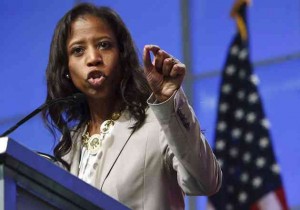 Mia Love It’s important to note what Love is not: unlike Barack Obama, she is not the beneficiary of a liberal party self-consciously aware of the chance to write history, and there was no racial base ready to rally around her, or to punish the party if she had been rejected in her primary. She is no caricature who bends so far to the right that it seems like a disingenuous pose: there is a distinct absence of fire and brimstone, and her embrace of Republican agenda items like the Ryan Plan is couched in process-minded tones, with no overheated claims that socialism is around the corner. Notably, her own mantra on the stump is that she asks about the sustainability and affordability of programs first—a conservative stance but a contrast with, say, Grover Norquist’s flamboyant description of shrinking government to a size that makes it fit to be drowned in a bathtub.
Read the rest of…
Artur Davis: Mia Love and the Future
By RP Staff, on Mon Jun 4, 2012 at 1:30 PM ET The Washington Post covered the recent announcement by contributing RP Artur Davis that he was defecting to the Republican party:
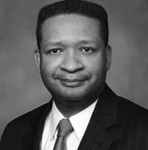 Republicans on Wednesday were celebrating the defection to the GOP this week of a former Democratic congressman and close ally of President Obama, saying that it underscored their argument that the president has led the country on a march to the left. Republicans on Wednesday were celebrating the defection to the GOP this week of a former Democratic congressman and close ally of President Obama, saying that it underscored their argument that the president has led the country on a march to the left.
Former Alabama congressman Artur Davis, once a rising star in the Democratic Party and the man who helped put Obama’s name in nomination for the presidency in 2008, announced his intention to switch parties and said that he will vote for Mitt Romney in November.
Click here to read the full article.
By Zac Byer, on Mon Jun 4, 2012 at 11:00 AM ET
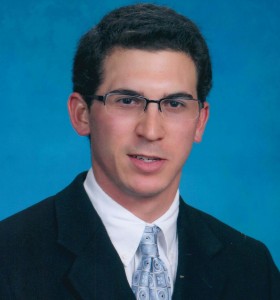 Good morning, and welcome to another edition of Prix Fixe Politics! Apologies for my absence, but May was a long month of work outside the political realm. I can’t say that disappointed me, but you can only stay away for so long (I’m on my way to catch a flight to Wisconsin for tomorrow’s gubernatorial maelstrom). On the eve of the second most important election of 2012, here’s today’s menu… Appetizer: We are less than 100 days away from the Republican and Democratic conventions in Tampa and Charlotte, respectively. They are the Super Bowl, March Mardness, and World Series of politics, but they only happen every four years. So, maybe they’re more like the Olympics or the World Cup, but with fewer viewers and many more out-of-shape people. A source tells me that the Democrats are six weeks behind the Republicans in their operations and development. With the first week of September only three months away, that can’t be sitting well with Obama’s Chicago outfit.
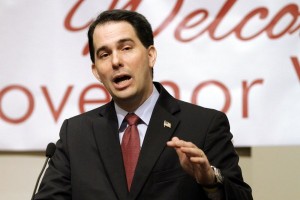 Main Course: Main Course: Tomorrow in Wisconsin, voters will go to the polls to participate in only the third recall election of any U.S. governor (if you’re from California, you may remember fondly when you could have voted for Gary Coleman to replace Gov. Gray Davis in 2003 – a bright spot in my home state’s storied history). Last year, WI Gov. Scott Walker sparked a firestorm when he eliminated most collective bargaining rights for public-sector unions. Since then, pro-labor forces mobbed the state capital in Madison, Democratic state legislators fled to Illinois to avoid a budget vote, and the candidates and independent groups spent over $63 million drumming up support. What happens if Tom Barrett, the Democratic nominee and Milwaukee Mayor, defeats Walker? Foremost, the labor unions’ financial efforts will be vindicated. The unions will gain significant fundraising momentum in important rust belt states such as Ohio and Michigan, making it even harder for Romney to move these must-win states into his column. And if Gov. Walker holds on? You can look for him in a prime speaking spot at the Republican National Convention in August. But more importantly, I expect other Republican Governors and state legislatures to toy with similar proposals. They may not have the courage to act before November, but they’ll float the idea, bring Walker to speak in their state (think Pennsylvania and Ohio), and use it as leverage over the labor/Democratic thorns in their sides. Who’s going to win? At this point, anybody in Wisconsin who plans to vote has made up his or her mind. It’s cliche, but it’s true: it will come down to voter turnout. And the unions are pretty good about loading Democratic voters into vans heading for the polls. Still, I think Walker keeps his job by 4-6 points.
Read the rest of…
Zac Byer: Prix Fixe Politics
By Jonathan Miller, on Wed May 30, 2012 at 1:07 PM ET Michael Tomasky hits the nail on the head regarding the President scripted mention of Polish death camps yesterday: [Daily Beast]
By Artur Davis, on Tue May 29, 2012 at 8:30 AM ET  There has never been much of a reservoir of respect in Barack Obama’s White House for the Republican Party. The disdain is partly the reflex of Chicago-bred operatives who found John McCain’s campaign soft and clumsy; partly the mindset of intellectual liberals who view John Boehner and Mitch McConnell as pedestrian local Civitans made good; but mostly it is the product of a worldview that sees conservatism as neither trendy nor clever, and as the fading gasp of a whiter, duller society. By all lights, Team Obama expected to dismantle Mitt Romney, who seems to them to crystallize all the inadequacies of their opposition. There has never been much of a reservoir of respect in Barack Obama’s White House for the Republican Party. The disdain is partly the reflex of Chicago-bred operatives who found John McCain’s campaign soft and clumsy; partly the mindset of intellectual liberals who view John Boehner and Mitch McConnell as pedestrian local Civitans made good; but mostly it is the product of a worldview that sees conservatism as neither trendy nor clever, and as the fading gasp of a whiter, duller society. By all lights, Team Obama expected to dismantle Mitt Romney, who seems to them to crystallize all the inadequacies of their opposition.
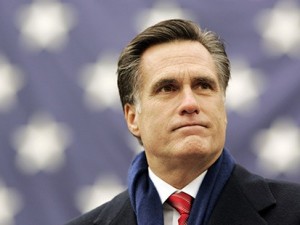 So, imagine their perplexity that Romney is either slightly ahead, or tied with Obama as spring heads to summer. For all of the Obama campaign’s tendencies to discredit any polling they don’t like, the numbers tell a more or less consistent story: Gallup puts Romney’s chronically low favorable ratings at their highest point yet, about even with Obama’s; CBS/New York Times reveals that the president’s much touted embrace of same sex marriage hurts him more than it helps, and that strikingly, nearly seventy percent of the country attributes the president’s history-making on the subject to political motives. ABC/Washington Post shows that a country preoccupied with the economy believes that a Romney presidency will make it better, and that an Obama reelection will have little effect. So, imagine their perplexity that Romney is either slightly ahead, or tied with Obama as spring heads to summer. For all of the Obama campaign’s tendencies to discredit any polling they don’t like, the numbers tell a more or less consistent story: Gallup puts Romney’s chronically low favorable ratings at their highest point yet, about even with Obama’s; CBS/New York Times reveals that the president’s much touted embrace of same sex marriage hurts him more than it helps, and that strikingly, nearly seventy percent of the country attributes the president’s history-making on the subject to political motives. ABC/Washington Post shows that a country preoccupied with the economy believes that a Romney presidency will make it better, and that an Obama reelection will have little effect.
Read the rest of…
Artur Davis: Romney’s Moment
|
The Recovering Politician Bookstore
|



















